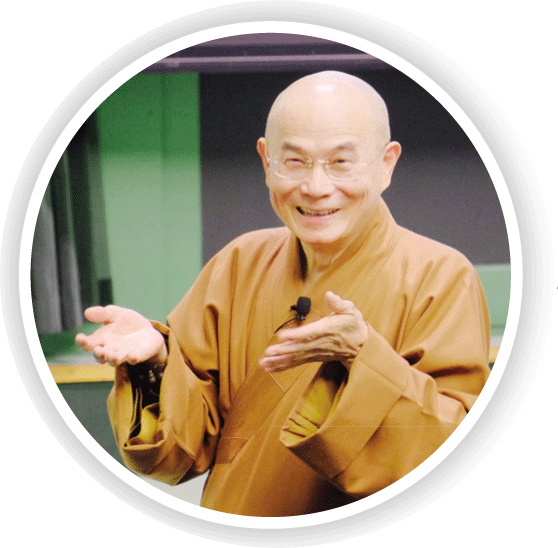Ven. Huimin’s Speech in University of Michigan:
Chan and Brain Science
Ven. Huimin’s Speech in University of Michigan:
Chan and Brain Science

During March 31 to April 5th, Venerable Hui-Min, the Principle of Dharma Drum Institute of Liberal Arts, made a special trip to the States to share his insights of the Dharma. Initially invited by Department of Asian Language and Culture, University of Michigan, he shared a series of curriculums of “Chan and Brain Science “; and gave a public speech for nearly 120 participants, on the topic of “Mindful Dying: Hospice care in Taiwanese Buddhism” in Rackham Amphitheater.
DDM followers in Michigan were taking this precious opportunity to meet Venerable Huimin, also invited him to give a lecture of “The Compasses to Pleasures, Chan practices, and Brain Science “in Lansing Buddhist Association Amitabha Village Retreat Center.

Dr. Benjamin Brose, in his opening introduction, firstly praised Ven. Huimin for his “Four abilities of unhindered understanding and expression” 四無礙智, namely, with great wisdoms of “no mistake in teaching” 法無礙; “no lack in regard to understanding the internal meaning of the teaching” 義無礙; “unhindered speech” 辭無礙, that is, the understanding of all languages; and “unhindered ease in explanation” 說無礙, which is the free use of the above three in the effort of saving all sentient beings.
Venerable Huimin expounded his views later, on the attributes of Hospice care in Taiwan. He pointed out that people from different cultural backgrounds may have diverse concepts of “Spirituality Care”. Governments worldwide are expected to improve citizen’s quality of life are also obligated to take into account citizen’s dying quality, therefore, to choose appropriate hospice care also becomes significant. According to death quality index, Taiwan was ranking as the top One in Asia, taking the training course of Taiwanese Buddhist Clinical Chaplains as well as the ideas and practices of Eco-friendly Memorial Garden in Dharma Drum World Center for Buddhist Education, as two of the examples.
In response to Ven. Huimin’s speech, one young student raised a question, “Why would Taiwanese Buddhists emphasize Hospice care instead of walking out to give help?” Ven. Huimin earnestly replied, ordinary people are inclined to take “tomorrow” for granted yet ignore the truth of impermanence and no-self. In this regard, if we can plan our lives as if confronted with death, we would better realize the essence of life, so as to become more satisfied with and have a delightful life, willing to help others, and enjoy the states of quiescent.
Ven. Huimin then gave all participants a reminder that we should be grateful every day even every present moment. It is thanks to the tremendous supports from other beings that our lives could be sustained; therefore our aspirations to aid others should easily arise.

In the other speech held on April 1 in Lansing Buddhist Association, Ven. Huimin took David Linden’s works, The Compass of Pleasure, as the thematic topic; next raised a discussion on the human behavioral pattern that tended to trace for pleasure. Discourses were further made to the points of the correlations with Chan practices and Brain Science, via the significant works of the Neurologist, James H. Austin.
To conclude, Ven. Huimin shared that when “I” was dissolved, we can be freed from the “time” pressure; when “me” was overthrown the fear would be gone; when “my” was taken apart, then no sustainable distinguishing point in self and others could be found, thus comes the realization of wisdom of equality.
Texts: DDM Lansing Chapter
Translation: Elenda Huang
Editor: DDM Australian Editorial Team